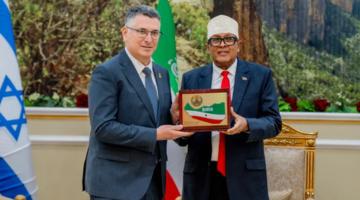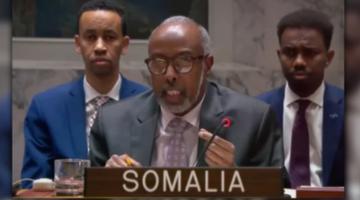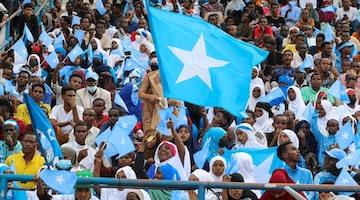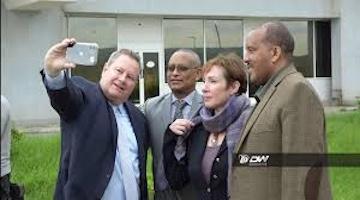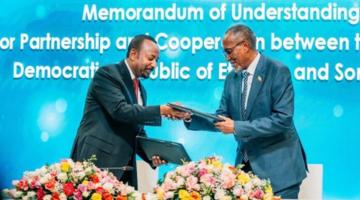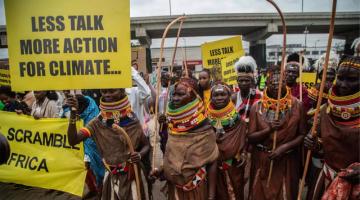“Ethiopia just changed the continent of Africa forever.” - African development economist and electricity activist @DavidHimbara
Ethiopians officially inaugurated the Grand Ethiopian Renaissance Dam (GERD) with great ceremony and celebration on Monday, September 8. The dam is an awesome achievement, not only because of its potential to generate up to 5,150 Megawatts of electricity, more than doubling Ethiopia’s electricity generation, but also because Ethiopians themselves paid for it, without the International Monetary Fund (IMF), the World Bank, or significant foreign funding outside of the Ethiopian diaspora. China reportedly provided some funding for turbines and electrical equipment but the dam was all but completely paid for by Ethiopians and Ethiopian institutions.
All the Ethiopians I've spoken to, when I was there in 2022 and since, are hugely and rightly proud of that. Even those with very little invested or donated what they could. I spoke to taxi drivers, tour guides, and housekeepers who were all excited about the dam. I saw “It’s My Dam” bumper stickers everywhere I traveled.
They have a lot to face, ongoing ethnic conflict, regional tensions threatening to erupt into an interstate war, and perhaps worst of all, drastic inflation that makes it difficult just to secure the basic necessities of life.
In spite of all that, they’re proud and excited about the dam, which offers hope of industrialization, modernization, and prosperity. Electricity will power industry, transportation, and education. Classrooms will have light and students will have light to study by.
Industrialization will help Ethiopians and neighboring countries escape the neocolonial extractive trap in which raw materials are exported at low prices and finished goods come back in at high prices. The population will develop new skills, create a more complex division of labor, and trade in finished goods within Ethiopia and with neighboring African nations.
It can finally lift the majority of Ethiopia’s population, and those of neighboring countries, from subsistence farming.
On the day of the GERD’s inauguration, Rwandan Canadian development economist and electricity activist David Himbara said, “Ethiopia just changed the continent of Africa forever — the power lines are already connected to the neighbouring countries whose populations are in the dark.”
Electricity poverty
Currently, sub-Saharan Africa faces an extraordinary level of energy poverty. Of the region’s 1 billion people, 620 million have no electricity. Worse still, about 80 percent of the region’s population still cooks with solid biomass. According to the International Energy Agency, of the 25 countries in the world where more than 90 percent of the population cooks by burning solid biomass, 20 are in Sub-Saharan Africa. Wood, charcoal, crop residues, or even animal dung are used as fuel for cooking and heating, which significantly damages both the environment and human health. It is a major source of air pollution and contributes to climate change, deforestation, and the degradation of local ecosystems.
The GERD will not solve this problem overnight, neither in Ethiopia nor in neighboring nations that it’s exporting electricity to, but its transformative potential is enormous.
Building the Delivery Infrastructure
The buildout of the electricity delivery infrastructure is the next step. In 2020, Chinese concerns had been contracted to build it when the 2020-2022 war started. The war was not fought in the Benishangul-Gumuz region where the dam is, and it seems that the lines had been built to transmit power from the dam to Ethiopia's national grid by February 2022. This enabled distribution to urban areas and exports to neighboring countries, but the broader national distribution network still needs to be further developed, particularly in rural regions, some of which are still wartorn.
By 2025, the GERD was contributing about 33% of Ethiopia's electricity, supporting nearly 100% of urban electrification and exports earning $118 million annually to neighbors like Sudan, Djibouti, Kenya, and Tanzania.
Can internal strife be overcome to make way for electricity expansion?
The 2020-2022 Northern Ethiopian Conflict not only halted but reversed the country’s development in the regions where it was fought, Tigray, Amhara, and Afar. When I was in Lalibela, Amhara Region, in 2022, the Chinese who had been building the road between Lalibela and Sekota had packed up and gone home with the road half built because of the war. Photojournalist Jemal Countess and I took that road north to the IDP camps in Sekota, and the contrast between the paved stretch and the dirt-and-gravel stretch was a lesson in just how much possibility paved roads open up. In Sekota we saw a regional college that had been turned into a military camp.
Yesterday I was in touch with someone in Lalibela who said that local contractors have resumed work on the road but that there are government soldiers in the camp formerly used by the Chinese. The federal government’s war with ethnic Amhara militia has succeeded its war with Tigrayans, and the Oromo Liberation Front are also fighting the federal government in Oromia Region.
As transmission lines from the GERD to the national grid were being built out, electricity infrastructure was being significantly damaged and destroyed in the Tigray, Amhara, and Afar regions. The conflict caused widespread destruction to power plants and transmission lines, leading to frequent electricity blackouts that affected essential services like health centers, water supply, and communications. Efforts to repair and rebuild this damaged infrastructure are underway, with millions of dollars invested in restoring power to affected area, but escalation of the current fighting could cause setbacks and will no doubt make it more difficult to continue the needed buildout.
As a project that the entire country helped bring to fruition, the GERD represents not only practical possibility but also Ethiopian national identity and aspiration. It’s what’s needed to overcome ethnic strife, make way for electricity expansion, and realize the full potential of the Ethiopian people.
Ann Garrison is a Black Agenda Report Contributing Editor based in the San Francisco Bay Area. In 2014, she received the Victoire Ingabire Umuhoza Democracy and Peace Prize for her reporting on conflict in the African Great Lakes region. She can be reached at ann@anngarrison.com. You can help support her work on Patreon.

